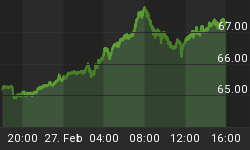Last October, at the opening of a Communist Party summit, Chinese President Xi Jinping said: "China will build a clean and clear internet space". Without any explanation, these words dispersed into the cosmos where they waited for clarity.
Now we know what he meant, and the clarification came in early September, when Beijing announced it was preparing a new set of rules designed to control the internet—that tyrannical beast that can truly only be harnessed by tyranny itself.
With that in mind, the Chinese government has rolled out a new platform called ‘Piyao’, hosted by the country's Central Cyberspace Affairs Commission and state-run media outlet Xinhua.
It’s aim? To take out rumors and fake news disseminated online and control what Beijing considers disinformation.
In its promotional video, Piyao--which means “refuting rumors” in Chinese, according to reports--has this message for citizens: “Rumours violate individual rights; rumours create social panic; rumours cause fluctuations in the stock markets; rumours impact normal business operations; rumours blatantly attack revolutionary martyrs.”
Piyao claims it will broadcast only “real” news and source reports solely from state-owned media, government agencies or party-controlled newspapers.
And if it doesn’t sound that ominous, well … it is. It will integrate 40 “rumour-busting” websites into a single website controlled by the government.
The platform also offers the public a way to report fake news online, but its efforts will be bolstered further by the use of artificial intelligence to identify reports that are “false”—in other words, reports that are not originating from state-controlled sources.
In a meeting last month, Xi told representatives of state-run media that propaganda efforts needed to be prioritized heavily in order to “uphold a clean and righteous internet space”.
Or, from another perspective, it’s an exercise in restricting freedom of speech and quashing criticism of the Communist Party. Related: Amazon Falls After A Brief Stint In The $1 Trillion Club
"The increasing pressure to gain control over online media is longstanding, reflecting Xi's goal to treat online media in the same way as traditional media,” CNBC quoted Paul Triolo, of the Eurasia Group, as saying.
According to Radio Free Asia, there is an intense internal struggle within in the Communist Party over the “juicy political gossip” that circulates online. At the same time, authorities have lost control over social conflicts that have arisen due to online content.
In its 2017 annual report, Freedom House described China as “the world’s worst abuser of internet freedom” for the third consecutive year, with users punished for sharing sensitive news and commentary, and even imprisoned for anywhere from five days to 11 years.
If it sounds eerily familiar, that’s because it is. Trump himself is on the warpath against American social media and tech giants such as Google, Facebook and Twitter—all of which are making him look bad.
While there is no Communist Party to make this easier for Trump to control, the administration has said it is “looking into” whether Google, for one, is suppressing positive articles about the president and allegedly manipulating search results and rigging the search engine “so that almost all stories & news is BAD”.
And social media giants themselves are starting down the censorship path—at least when it comes to foreign content (largely Russian- and Iranian-linked) deemed to be peddling political influence. With this in mind, Beijing isn’t the only power seeking to leash the monster that is the internet, and that’s definitely the ethical quandary of our technological day.
By Damir Kaletovic for Safehaven.com
More Top Reads From Safehaven.com
















